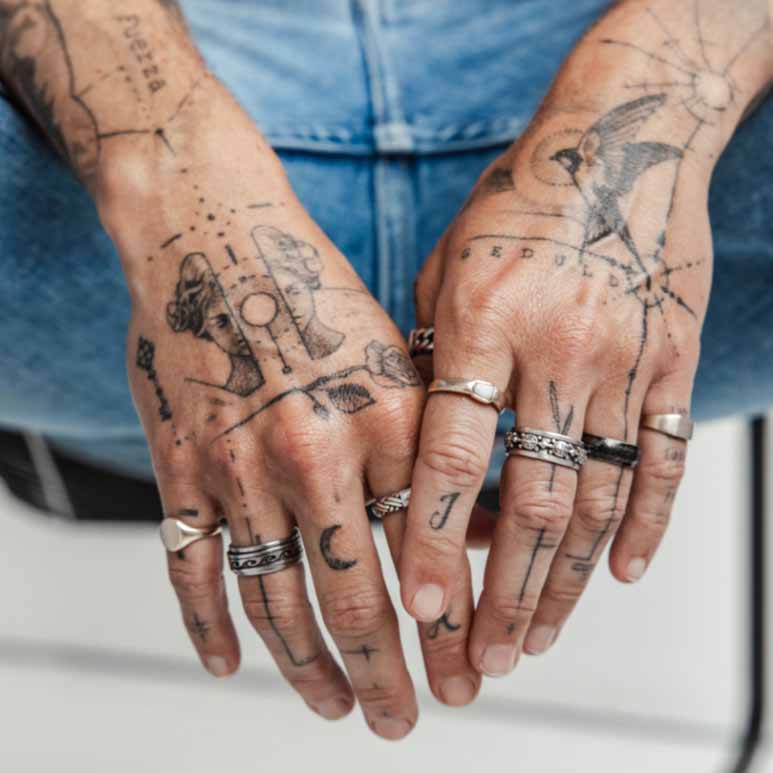
If you choose a tattoo, you choose a lifelong commitment! Only that tattoo, does not stay the same forever. It does not matter what kind of tattoo this is. They change as they heal and get older. Curious about what a tattoo looks like over time? Read the blog and check out the practical tips to keep your tattoo fresh for years to come!
The tattoo has just been done. Colors look vibrant and the lines are sharp. In the coming weeks, the skin heals and the tattoo, which changes.
New tattoo – The lines are clear and tight. This is because there is no healed skin layer over it yet.
Healed tattoos – After about 4 to 8 weeks, a new layer of skin covers the tattoo. This makes the tattoo appear lighter in color.
Over the years, tattoos can fade, lines become fainter or thicker. Colors can become softer. A natural process, but there are certainly ways to slow this down!
The skin consists of several layers: the epidermis, the dermis and the subcutis. The tattoo ink is a few layers deep in the skin. The cells in our immune system eat foreign substances (including ink). White blood cells, just like with a wound, go to the place where the ink is injected. Ink is the intruder and the white blood cells, also called macrophages, absorb the dye to render it harmless. These macrophages die off just like all other cells in your body, but fortunately new ones appear. They take over part of the ink from the macrophages that die off, the transfer is not entirely without loss and that is why your tattoo ‘lives’ and slowly changes over the years. However, the largest part is transferred well and this means that the ink remains in the skin.
In addition, the epidermis (the top layer of skin) functions as a “filter”. This may cause the colors to appear slightly lighter and less vibrant as the skin heals than when the tattoo was first applied.
There are also differences in the types of fading. For example, over time the deep black color may disappear and a green or blue glow may appear. This depends on the skin tone. As the tattoo recovers and ages, the ink will sink in. The result? The lines are less sharp. With a fineline tattoo, the lines will fade, this is because less ink enters the skin. A result of the white blood cells that clean up the ink. They make the ink particles disappear.
Aging is natural, but there are things you can do to keep your tattoo as fresh as possible.
Absolutely! Part of the beauty is how tattoos grow with you. New tattoos are beautiful. A tattoo that has healed or is older can develop a timeless charm.
Now that you know how a tattoo can change, you can go to your next appointment well-informed and prepared. Protect your tattoos with sunscreen, moisturize regularly, and embrace the process of your tattoos changing! Tattoos look great no matter how many years pass.
share